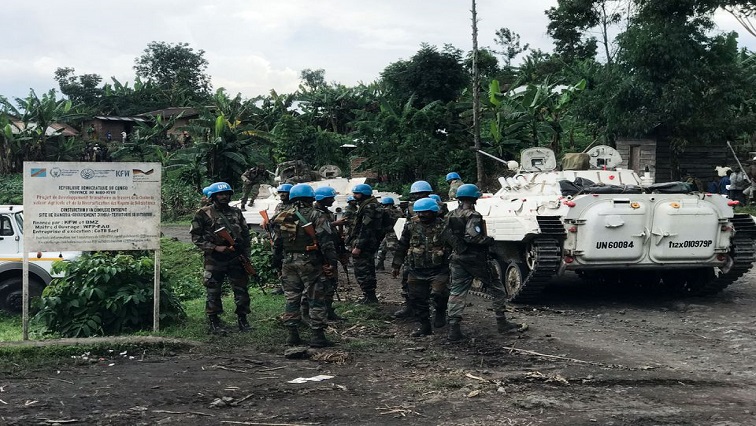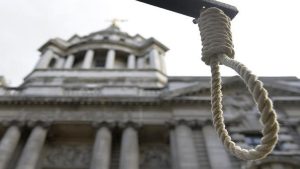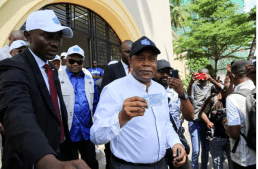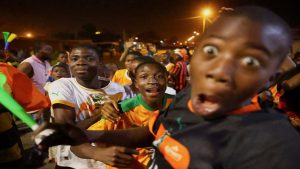The withdrawal of the peacekeeping mission from the Democratic Republic of Congo (DRC) should not jeopardise the protection of civilians in the country. That was the message from the UN’s Assistant Secretary General for Africa Martha Pobee during a briefing to the Security Council after a call earlier this month from DRC’s Minister of Communication for the withdrawal of peacekeeping forces within 6 months.
Many Congolese view MONUSCO, to which the SANDF provides troops as ineffective in its role to protect civilians from violent armed groups operating in the country’s East.
Several council members, including the three African states, emphasised the need for an orderly drawdown in consultations with the DRC Government.
The DRC Government wants MONUSCO’s exit from the country expedited. But peacekeeping mandates are determined by the Security Council, with the current mandate due for renewal in December, just as the DRC goes to critical general elections.
Assistant Secretary General for Africa, Martha Pobee says, “In a rapidly evolving national and regional environment, we must stay on course for an orderly, gradual and responsible transition. The departure of MONUSCO is planned and initial steps are being taken in several areas. However, MONUSCO’s withdrawal should not jeopardize the protection of civilians. We must avoid creating security vacuums. The Mission cannot responsibly depart from areas where MONUSCO is the only protection presence.”
Peacekeeping Mission | Talks underway for MONUSCO withdrawal from DRC
The UN’s peacekeeping presence has been a constant in the DRC as far back as 1999 – among the largest and expensive – as armed groups have remained a menace to populations in the eastern regions of the country. As serious consideration is given to adapting the mission’s configuration once the current mandate expires.
Pobee points to the role of Congolese Government in creating the conditions for MONUSCO’s transition out of the country.
“I recall that the transition of MONUSCO is, in simple terms, the continuation of the Mission’s mandated tasks by Congolese authorities. It is up to the Congolese Government to create the conditions for this continuation to be viable for the long term. The Mission, jointly with the UN Country Team is, for its part, fully committed to assisting the Congolese authorities in this endeavor. In this regard, MONUSCO and the UN Country Team have engaged pro-actively with the Government to jointly re-evaluate the joint transition plan, as mandated by the Council.”
The Africa-3 provided feedback on the proposed timeline through Gabon’s Ambassador Michel Xavier Biang.
“Turning now to MONUSCO’s transition. Ghana, Mozambique and Gabon reiterate the need to ensure an orderly drawdown in consultation with Congolese authorities. The A3 welcomed the progress made by the Government of the DRC in the implementation of the benchmarks established in the Joint Transition Plan, including the strengthening of its system to manage arms, ammunition.”
The United States pointed to MONUSCO’s importance to the DRC and the broader region as it expressed concern about the Government’s calls for the mission’s expedited withdrawal.
US Alternate Ambassador for Special Political Affairs Robert Wood says, “As we have said many times, MONUSCO cannot – and should not – stay in the DRC indefinitely. But there is broad consensus that the DRC government will have not met the benchmarks it agreed upon as the minimum conditions for MONUSCO’s drawdown by the end of 2023. A precipitous withdrawal of MONUSCO would likely leave a security vacuum that state authorities are unable to fill, with devastating effects for the region’s most vulnerable populations.”
Other members urged that lessons be learned from previous peacekeeping closures to ensure that mistakes were not repeated as the DRC Government’s capacity to protect civilians throughout the country becomes a key benchmark moving forward.






